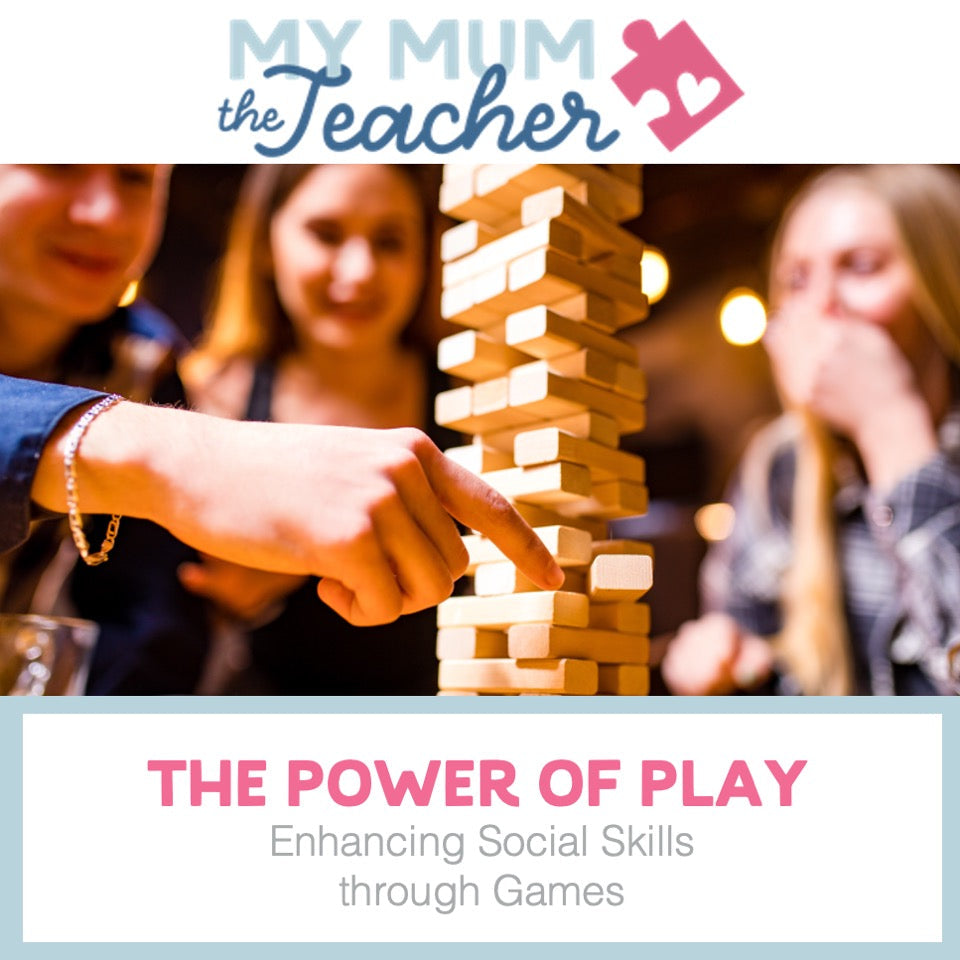
The Power of Play: Enhancing Social Skills Through Board Games
Share
Board and card games are more than just a source of entertainment; they are powerful tools for developing essential social skills such as turn-taking, sharing, patience, and effective communication. Engaging in gameplay fosters a sense of community, strengthens relationships, and provides opportunities for meaningful interactions.
Incorporating board games into family routines can create bonding experiences, encourage open communication, and teach children the value of cooperation and empathy. Similarly, integrating games into the classroom setting promotes a collaborative learning environment, helps students build positive relationships with peers, and enhances their ability to work as part of a team.
Below is a curated selection of board games tailored to different age groups, each designed to support the development of social skills. Many of these I have in my own home and classroom, and are used regularly for the purpose of connection, relationship building and simply... FUN!
Ages 2–5: Building Early Social Foundations
For young children, play is a primary mode of learning. Board games for this age group focus on:
- Turn-Taking: Learning to wait for one's turn.
- Sharing: Understanding the importance of sharing resources.
- Patience: Developing the ability to wait and listen.
- Basic Communication: Enhancing verbal and non-verbal communication skills.
Recommended Games:
-
ThinkFun Zingo!
A bingo-style game that promotes turn-taking and vocabulary development. -
Learning Resources All About Me Feelings Activity Set
Helps children express emotions and develop empathy through interactive play. -
Orchard Toys Sharing Game
Designed to teach the concept of sharing and taking turns in a fun, engaging way. -
Peaceable Kingdom's The Sneaky, Snacky Squirrel Game
Encourages strategic thinking, turn-taking, and fine motor skills. -
Melissa & Doug's Take-Along Shape Sorter
While primarily a shape sorter, playing together promotes sharing and cooperative play.
Ages 6–10: Enhancing Cooperative Play and Communication
As children grow, their social interactions become more complex. Board games for this age group focus on:
- Cooperation: Working together towards a common goal.
- Effective Communication: Expressing ideas clearly and listening to others.
- Conflict Resolution: Navigating disagreements and finding solutions.
- Empathy: Understanding and sharing the feelings of others.
Recommended Games:
-
Junior Learning 6 Social Skills Games
A set of games designed to teach essential social skills like empathy, listening, and cooperation. -
Didax Social Skills Board Games (6 Pack)
Each game focuses on a different aspect of social interaction, from manners to managing emotions. -
StrongSuit – The Tower of Self Esteem
Encourages players to build self-confidence and understand the importance of teamwork. -
Peaceable Kingdom's Race to the Treasure
A cooperative game where players work together to beat the ogre to the treasure. -
Outfoxed! A Cooperative Whodunit Game
Players collaborate to solve the mystery, promoting deduction and teamwork.
Ages 11+: Developing Advanced Social and Emotional Skills
For older children and adolescents, board games can serve as tools for:
- Advanced Communication: Engaging in meaningful conversations and discussions.
- Perspective-Taking: Understanding different viewpoints.
- Emotional Regulation: Managing emotions in social situations.
- Teamwork and Leadership: Leading groups and working collaboratively.
Recommended Games:
-
Head Rush – Social Skills Game
Designed to develop mindfulness, self-awareness, and effective communication. -
You Know – Social Skills Game
Encourages open communication and helps players establish meaningful relationships. -
2F22E Connect More Plus – Social Skills Game
Features thought-provoking prompts to foster deeper connections and improve communication skills. -
Codenames
A word association game that enhances communication and teamwork. -
The Resistance
A game of deception and deduction that promotes strategic thinking and group interaction.
Integrating board games into family time and classroom activities offers a dynamic way to nurture social skills across various age groups. These games provide structured yet enjoyable opportunities for individuals to practice empathy, cooperation, and effective communication. By selecting age-appropriate games, caregivers and educators can create environments that support social development and strengthen interpersonal relationships.
Note: Always ensure that the games are developmentally-appropriate and align with the individual's interests, strengths and developmental needs.



